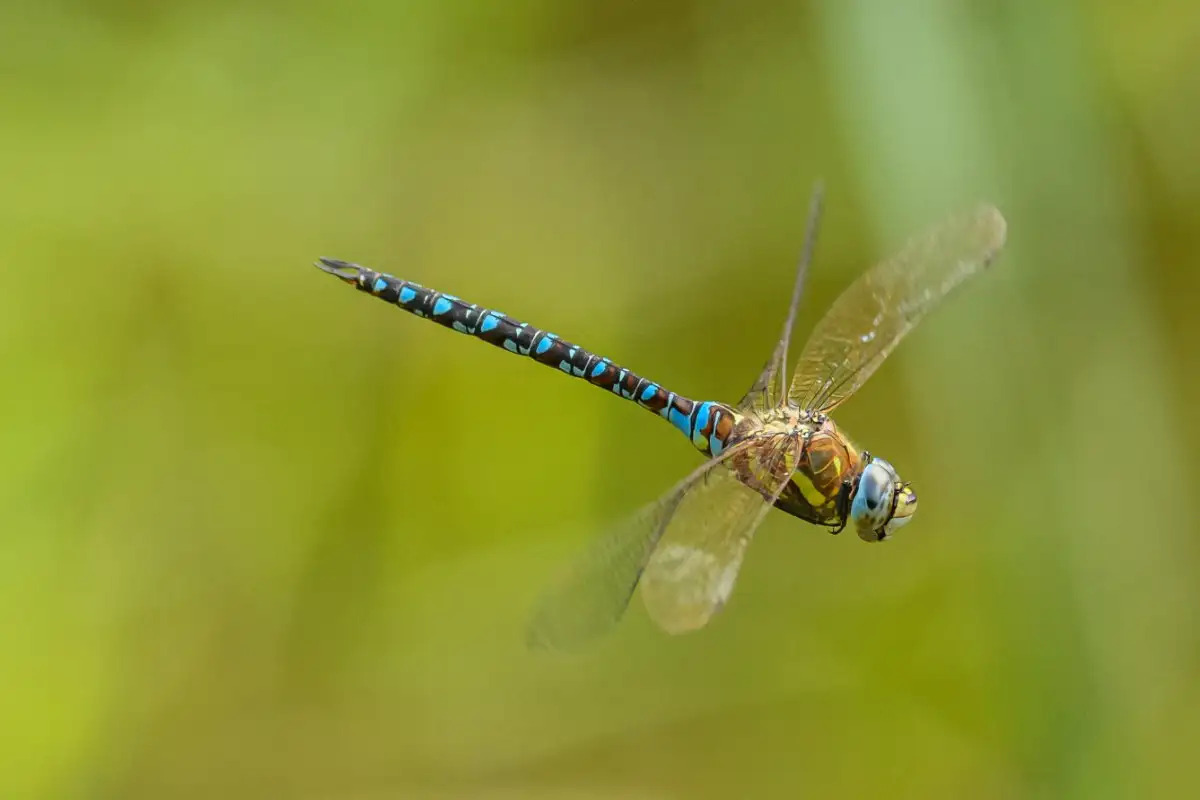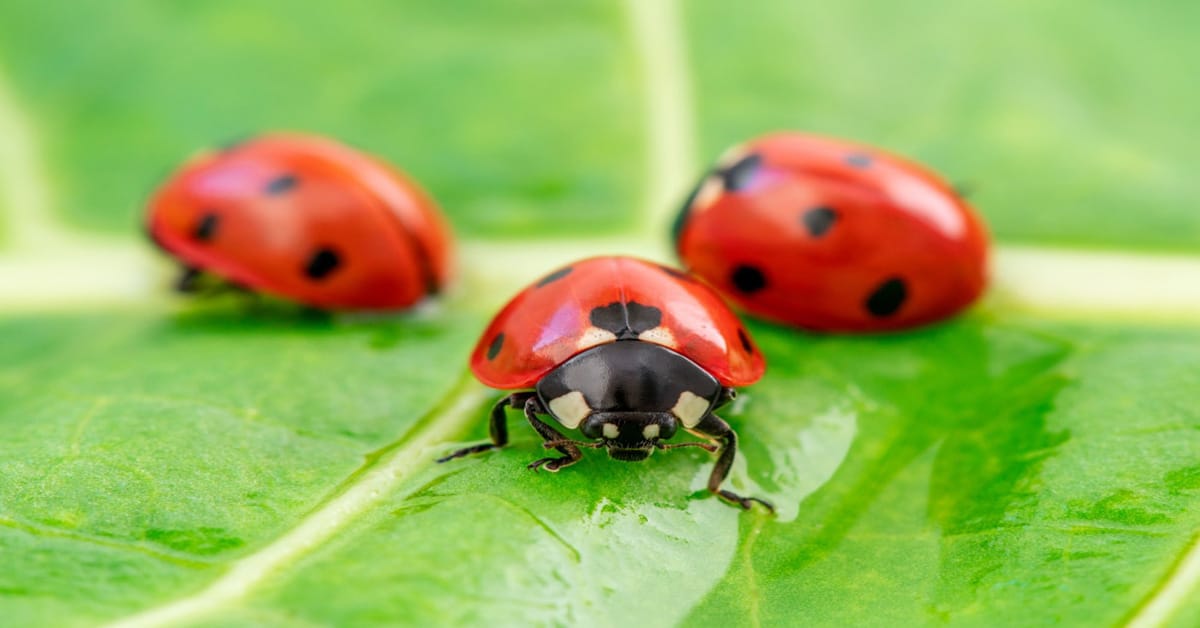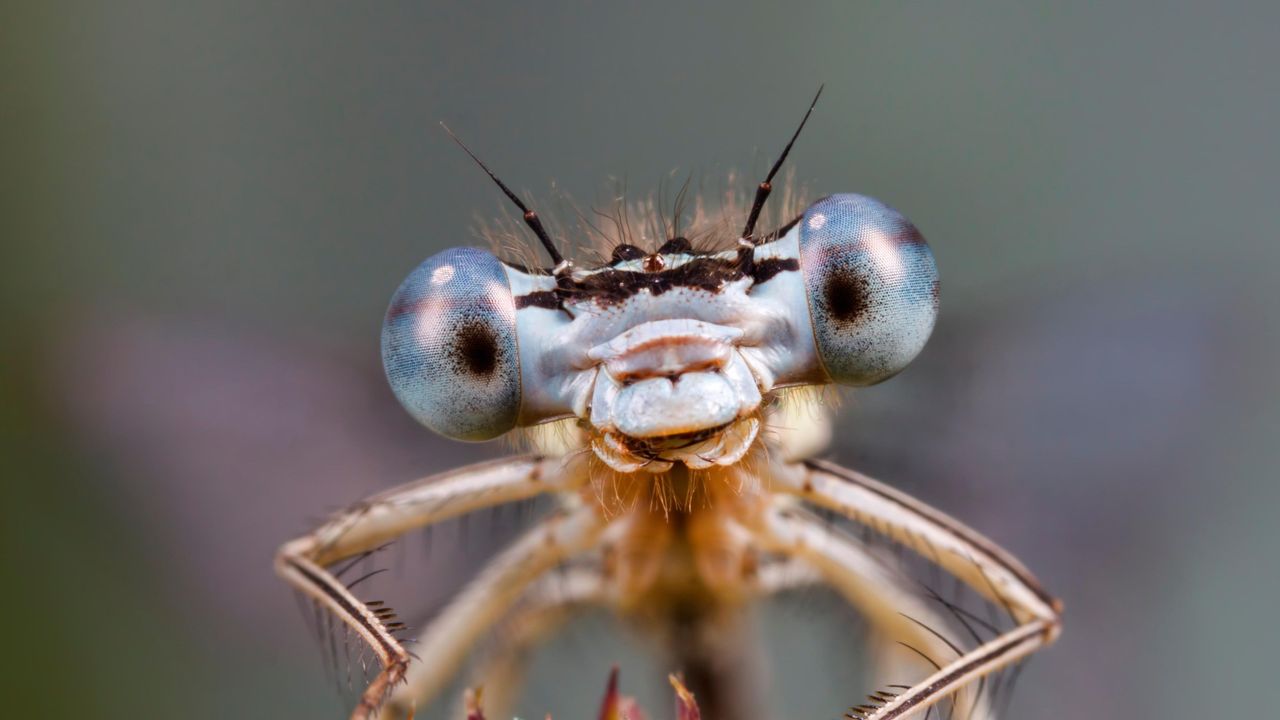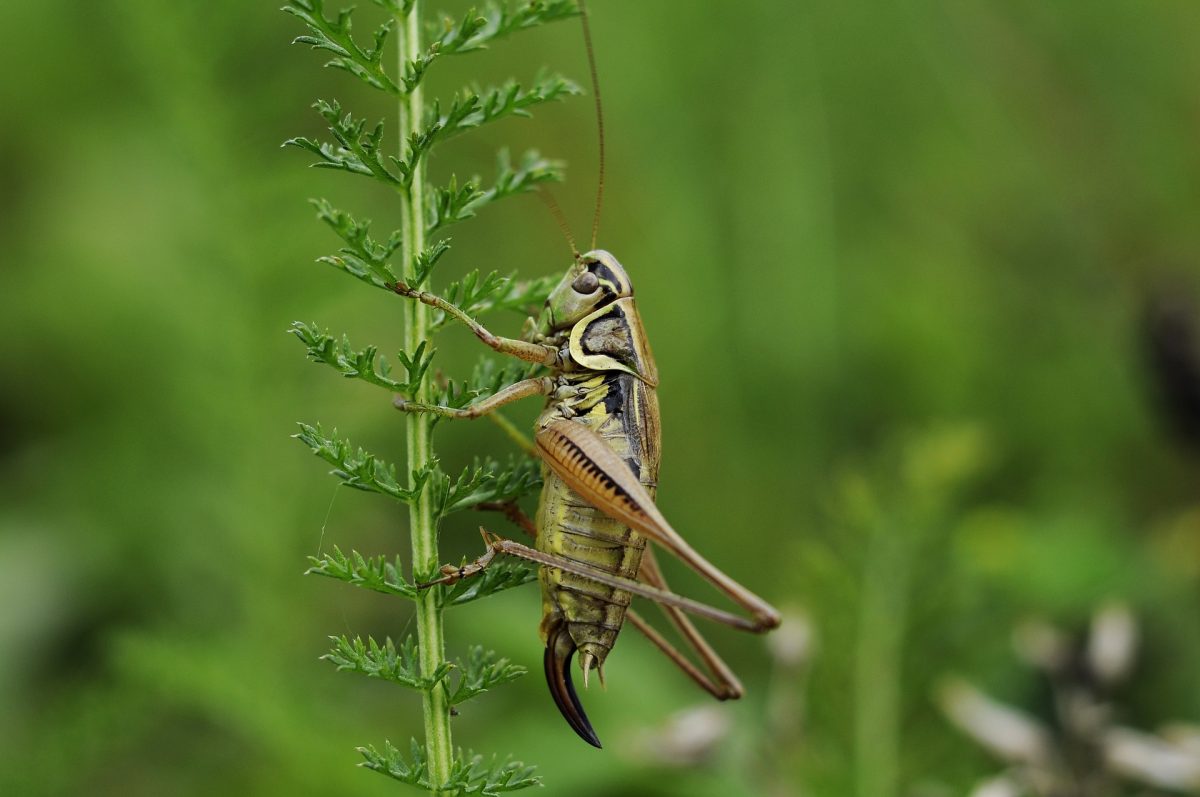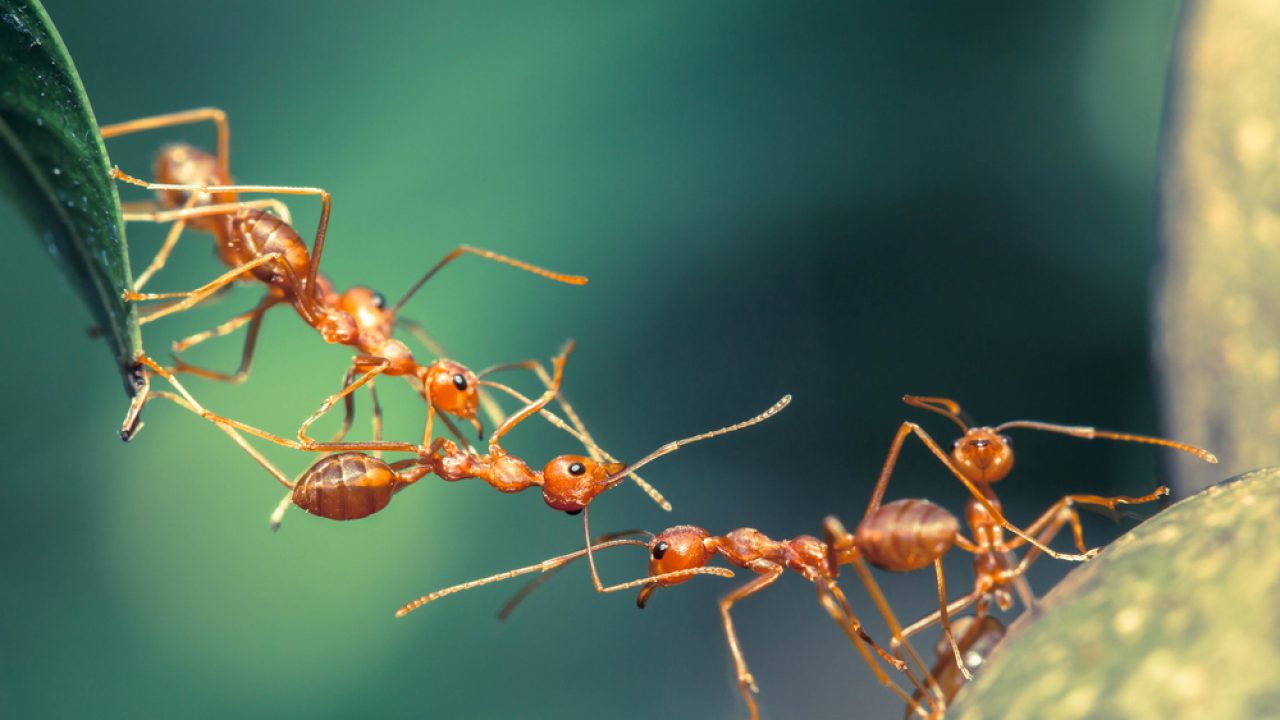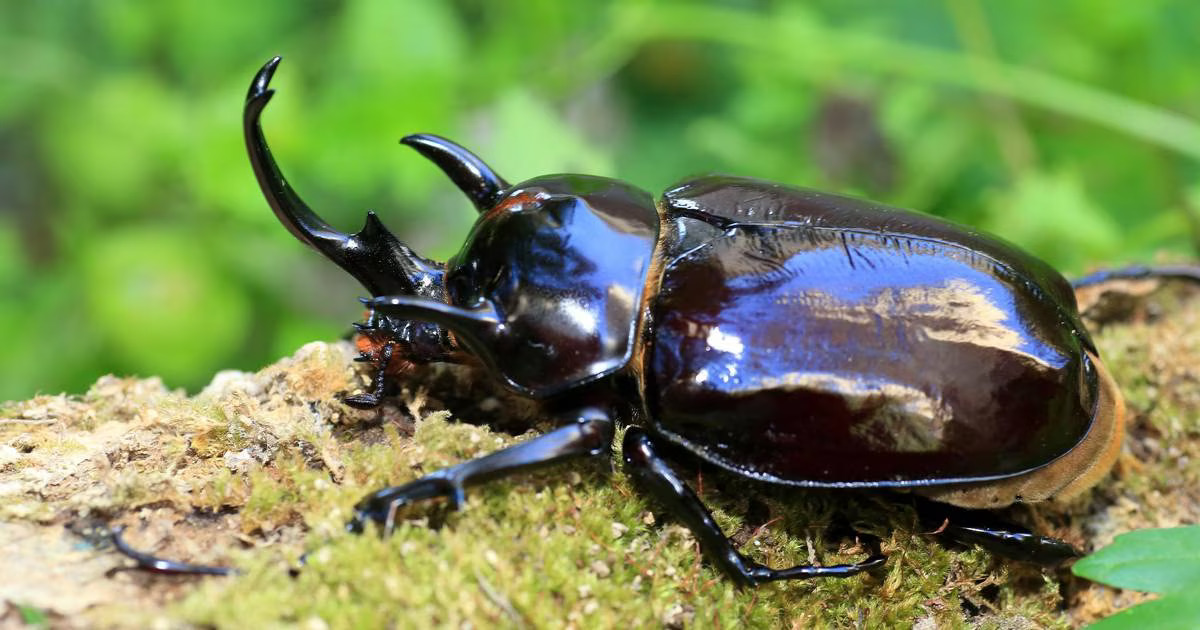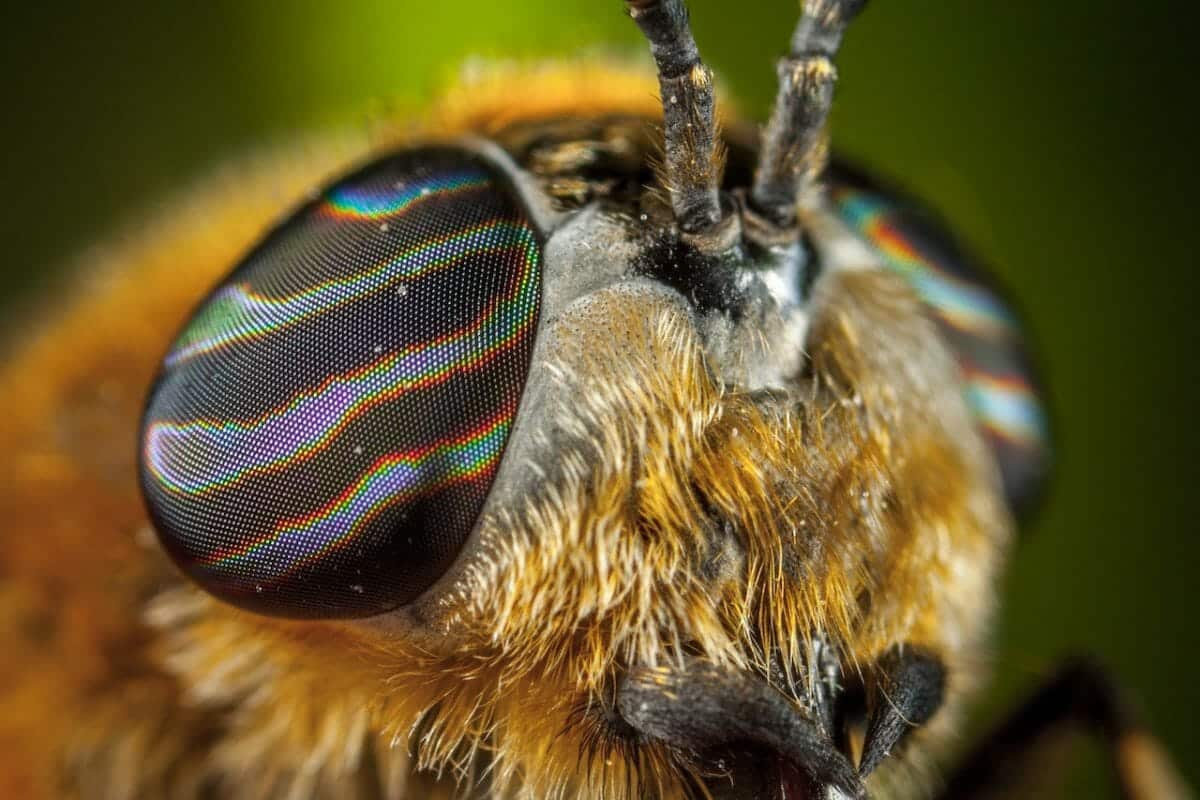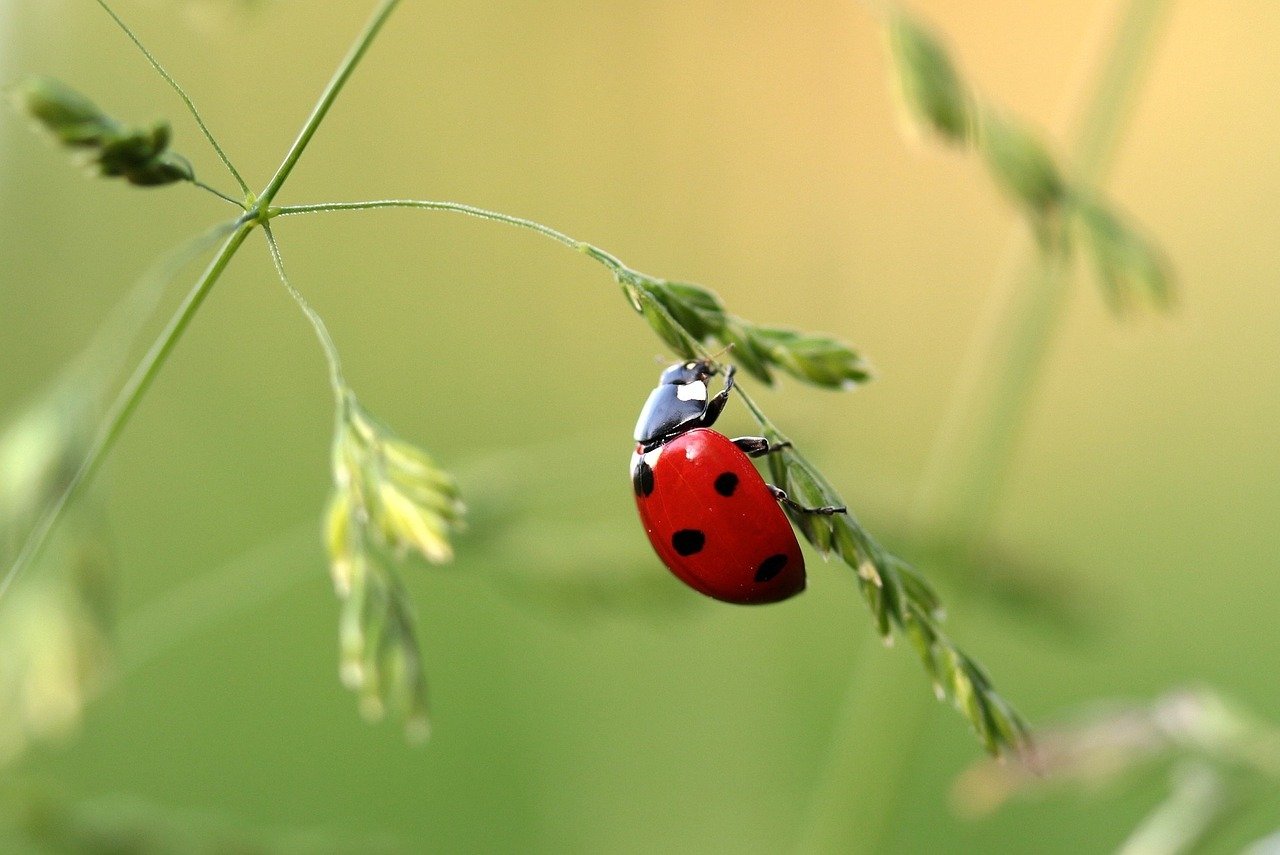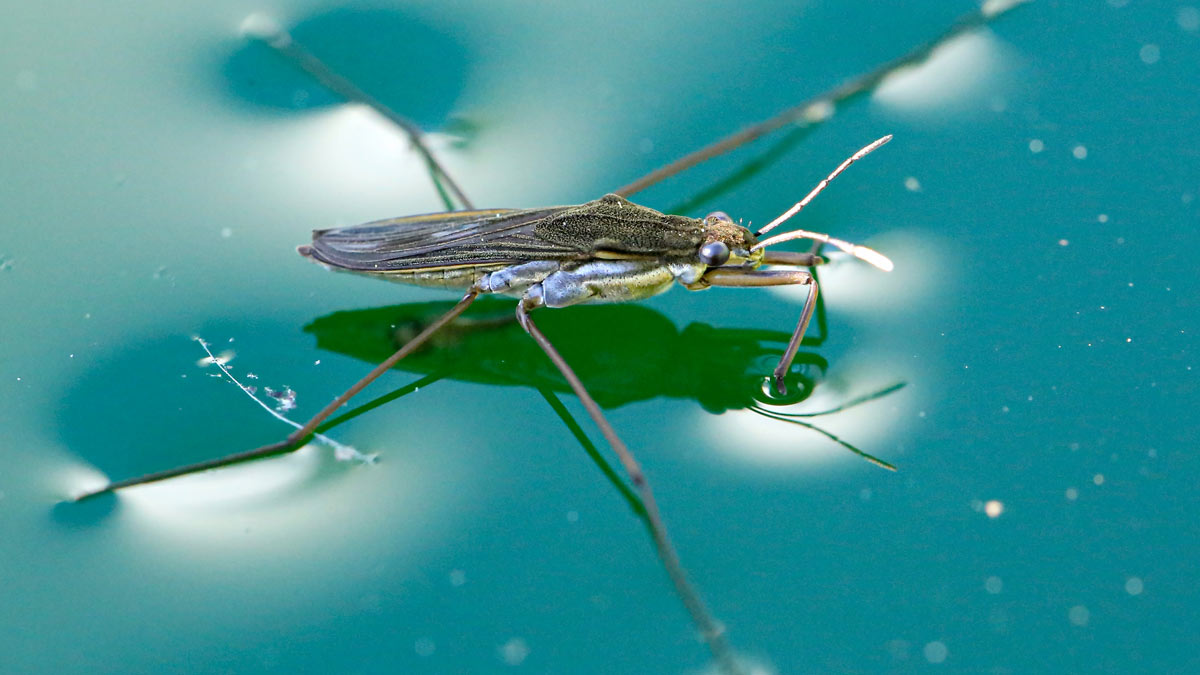Home>Gardening News and Trends>Latest News>How Do Insects Benefit Humans


Latest News
How Do Insects Benefit Humans
Modified: January 22, 2024
Discover the latest news on how insects benefit humans. Explore the positive impact of these creatures in agriculture, medicine, and more.
(Many of the links in this article redirect to a specific reviewed product. Your purchase of these products through affiliate links helps to generate commission for Chicagolandgardening.com, at no extra cost. Learn more)
Table of Contents
Introduction
Insects are often regarded as pesky creatures that invade our homes, ruin our picnics, and cause discomfort. However, these small creatures play a crucial role in our ecosystem and provide numerous benefits to humans. From pest control to pollination, decomposition to nutrient cycling, insects have a significant impact on our lives and the world around us.
With over a million known species, insects are the most diverse group of organisms on Earth. They can be found in every corner of the planet and are vital for the balance and functioning of ecosystems. Despite their small size, insects have a big impact on human society and the environment, shaping the world in ways that often go unnoticed.
This article explores the various ways that insects benefit humans, highlighting the importance of these humble creatures in our daily lives. By understanding and appreciating the positive contributions of insects, we can develop better conservation strategies and ensure the long-term sustainability of our ecosystems.
Let’s delve into some of the key benefits that insects bring to our lives:
Pest Control
One of the most important ways that insects benefit humans is through natural pest control. Many insects, such as ladybugs, lacewings, and parasitic wasps, act as predators or parasites of agricultural pests. They help to keep populations of harmful insects in check, reducing the need for chemical pesticides.
These beneficial insects are often used in biological pest control programs, where they are introduced into agricultural fields to target specific pests. For example, ladybugs feed on aphids, which are notorious for damaging crops. By releasing ladybugs into infested fields, farmers can effectively control aphid populations and protect their crops.
Furthermore, insects such as beetles and mites play a crucial role in controlling pests that infest stored grains and crops. They act as natural predators that feed on pests like weevils and grain borers, preventing them from causing significant damage to agricultural produce.
This natural form of pest control not only reduces the reliance on harmful chemicals, but it also helps to maintain the overall health of ecosystems. By preserving the balance between pests and their natural enemies, insects contribute to sustainable and environmentally friendly agricultural practices.
Pollination
Insects, particularly bees and butterflies, play a vital role in pollinating plants. Pollination is the process by which pollen is transferred from the male part of a flower to the female part, resulting in the fertilization of the plant and the production of seeds and fruits.
Bees, as the most efficient pollinators, are responsible for pollinating a wide variety of flowering plants, including many crops that are essential for our food production. They visit flowers in search of nectar and pollen, inadvertently transferring pollen from one flower to another as they move. This cross-pollination leads to genetic diversity and increased fruit production of many plant species.
Without insects, the process of pollination would be greatly hindered, resulting in reduced crop yields and decreased biodiversity. It is estimated that about one-third of global food production depends on animal pollinators, primarily bees. From fruits and vegetables to nuts and oils, many of our dietary staples rely on the pollination services provided by insects.
Besides bees, butterflies, moths, beetles, and even flies also contribute to pollination. Each insect has its own unique relationship with certain flowering plants, ensuring the survival and reproduction of both parties. This intricate web of interactions highlights the interconnectedness of species and the importance of preserving insect populations for the health of our ecosystems.
Decomposition
Insects play a critical role in the process of decomposition, breaking down organic matter and recycling nutrients back into the ecosystem. They are nature’s recyclers, feeding on dead plant and animal materials and accelerating the decomposition process.
One of the key groups of insects involved in decomposition is the carrion beetles. These beetles feed on carcasses, helping to break them down and recycle the nutrients they contain. By doing so, they prevent the build-up of rotting organic matter and reduce the risk of spreading diseases.
In addition to carrion beetles, various other insects, such as maggots, flies, and ants, contribute to the decomposition process. They consume decaying plant matter, fallen leaves, and other organic debris, breaking them down into smaller particles. This breakdown releases nutrients into the soil, making them available for uptake by plants and supporting the growth of new vegetation.
Furthermore, insects that live in the soil, such as earthworms and beetle larvae, help to aerate the soil and improve its structure. Through their burrowing activities, these insects create channels for air and water, allowing for better nutrient absorption and root growth.
By facilitating the decomposition of organic matter, insects play a vital role in maintaining the nutrient cycles of ecosystems. They ensure the efficient recycling of nutrients and contribute to the overall health and productivity of the environment.
Nutrient Cycling
Insects are essential participants in the complex process of nutrient cycling within ecosystems. They play a crucial role in breaking down organic matter, releasing nutrients back into the environment, and facilitating their uptake by plants.
When insects feed on decaying plant and animal material, they break down complex organic compounds into simpler forms. Through their digestive processes, they convert this organic matter into nutrients that are readily available for absorption by plants. In this way, insects act as natural bioconverters, helping to transform organic waste into valuable resources.
Take, for example, leaf litter on the forest floor. Insects, such as beetles, millipedes, and ants, feast on decaying leaves, speeding up the decomposition process. As they consume the leaves, they break them down into smaller fragments, increasing their surface area and exposing them to microbial activity. This accelerates the release of nutrients, such as nitrogen and phosphorus, from the decaying leaves, making them accessible to other organisms.
Furthermore, the waste products produced by insects, such as their feces or castings, contribute to nutrient cycling. These excretions contain valuable nutrients that can be readily absorbed by plants, nourishing their growth and supporting the overall productivity of ecosystems.
In addition to nutrient release, insects also aid in the distribution of nutrients throughout the environment. As they move and disperse, insects transport organic matter and nutrients to different areas within an ecosystem. For example, ants are known to scavenge and transport seeds, fungal spores, and other organic materials, playing a crucial role in the dispersal of nutrients and the colonization of new habitats.
By actively participating in nutrient cycling, insects contribute to the sustainability and resilience of ecosystems. They ensure that nutrients are efficiently recycled and made available for the growth and development of plants, ultimately supporting the entire food web.
Food Source
Insects are not only beneficial to humans indirectly through their ecological roles but also directly as a source of food. In many cultures around the world, insects have been consumed as a traditional food source for centuries.
Entomophagy, or the practice of eating insects, is gaining increasing global recognition as a sustainable and nutritious food option. Insects are rich in protein, healthy fats, vitamins, and minerals, making them a valuable alternative protein source.
Beetles, crickets, grasshoppers, and mealworms are some of the commonly consumed insects. These insects can be harvested, processed, and prepared into various dishes, such as insect protein bars, cricket flour, or fried insects as snacks. The taste and texture of insects can vary, with some comparing them to nuts or seafood.
The consumption of insects as a food source offers several advantages. Insects have a high feed conversion efficiency, meaning they require minimal resources to produce a significant amount of edible protein compared to traditional livestock. Additionally, insects can be reared on organic waste or agricultural byproducts, reducing the environmental footprint associated with feed production.
Embracing insects as a food source can also contribute to food security. As the global population continues to grow, traditional livestock production may not be sustainable in meeting the increasing demand for protein. Insects present a viable and scalable solution to address this challenge, providing a more sustainable and nutritious option for feeding a growing population.
Although the idea of eating insects may seem unconventional to some, incorporating insects into our diets can have numerous benefits. If approached with culinary creativity and openness, insects have the potential to diversify our food choices, promote sustainability, and contribute to a more resilient food system.
Economic Value
Insects create significant economic value through various industries and sectors, contributing to job creation, trade, and economic growth. Their impact spans areas such as agriculture, pharmaceuticals, textiles, and tourism.
Agriculturally, insects play a vital role in crop production and yield. By pollinating crops, they enhance fruit and seed production, leading to increased agricultural productivity and higher crop yields. Furthermore, through natural pest control, insects reduce the reliance on chemical pesticides, resulting in cost savings for farmers.
The global market for insect-derived products, such as honey, silk, and beeswax, is substantial. Honeybees, for example, are not only essential for crop pollination but also produce honey, beeswax, propolis, and royal jelly, which have commercial value in the food, cosmetic, and medicinal industries.
Insects also contribute to the pharmaceutical industry. Many insect species produce bioactive compounds and antimicrobial substances that have potential therapeutic applications in medicine. For instance, the blood of horseshoe crabs contains a compound crucial for the detection of bacterial contamination in medical equipment and vaccines.
The textile industry benefits from silk production, primarily sourced from silkworms. Silk is a highly prized natural fiber known for its strength, luster, and breathability. The production of silk not only provides livelihoods for many people involved in sericulture but also contributes to international trade and commerce.
The tourism industry also capitalizes on insects’ appeal through ecotourism and wildlife tourism. Insects, such as butterflies, dragonflies, and fireflies, attract tourists who are interested in observing and learning about the diverse insect populations in specific habitats. This generates revenue for local communities and supports conservation efforts.
Furthermore, insect-related research and technology development contribute to economic growth. Scientists study insects for their unique adaptations and behaviors, leading to advancements in various fields, such as biomimicry, robotics, and genetics. These technological innovations have the potential to drive economic progress and improve the quality of human life.
Overall, insects have substantial economic value, extending beyond their ecological contributions. Their role in various industries and sectors highlights the importance of preserving insect populations and ecosystems for sustainable economic development.
Medical and Scientific Research
Insects have become invaluable subjects for medical and scientific research, offering unique insights and advancements in various fields, including medicine, genetics, and ecology.
One area where insects have contributed significantly is in medical research. Certain insects, such as fruit flies and mosquitoes, share genetic similarities with humans, making them excellent models for studying human diseases and genetic disorders. Researchers can manipulate and study the genes of these insects, providing valuable insights into molecular mechanisms and potential treatments.
Insects have also played a crucial role in the field of pharmacology. Many insects produce venom or toxins that have therapeutic properties. For instance, the venom of certain species of wasps and ants contains peptides that have been studied for their potential anti-cancer and antimicrobial properties. By studying the chemical composition of insect venom, scientists can develop new drugs and therapies that may benefit human health.
Additionally, insects play a significant role in forensic science. Forensic entomology, the study of insects in relation to legal investigations, helps determine the time of death or postmortem interval in criminal investigations. By studying the life cycles and behavior of insects found on a deceased individual, forensic entomologists can provide valuable evidence in solving crimes.
Moreover, insects have provided inspiration for technological advancements. The study of insect flight has influenced the design of drones and aircraft. Ant behavior has led to the development of algorithms for efficient traffic routing and logistics. By studying the intricate adaptations and behaviors of insects, scientists gain knowledge that can be translated into practical applications for various industries.
Furthermore, insects contribute to ecological research. They act as indicators of ecosystem health and biodiversity. Changes in insect populations and distributions can provide valuable information about the impacts of climate change and habitat destruction. By studying the interactions between insects and their environment, scientists gain a better understanding of ecological processes and can develop strategies for conservation and ecosystem management.
Overall, insects serve as crucial research subjects in medical, genetic, forensic, and ecological studies. Their unique characteristics and behaviors provide valuable insights that contribute to medical advancements, technological innovations, and our understanding of the natural world.
Cultural Importance
Insects have significant cultural importance and play diverse roles across different societies and cultural practices. They are often found in folklore, art, music, and religious symbolism, enriching the cultural fabric of communities around the world.
In many indigenous cultures, insects are considered sacred or hold symbolic meanings. They are revered as symbols of transformation, resilience, and spirituality. For example, the butterfly is often seen as a symbol of rebirth and transformation, representing the cycle of life and the soul’s journey.
Insects also feature prominently in traditional art and craftsmanship. Intricate insect motifs and designs can be found in paintings, sculptures, textiles, and pottery, showcasing the appreciation and fascination with their intricacy and beauty. Insect-inspired patterns and motifs are often used to adorn clothing, jewelry, and accessories.
Festivals and celebrations in different cultures often include insect-themed events. Firefly festivals, for instance, celebrate the enchanting beauty of these bioluminescent insects. Locals and tourists gather to witness the mesmerizing display of flashing lights in the night sky, immersing themselves in the magical ambiance created by these tiny creatures.
In some cultures, insects are also incorporated into traditional cuisine. For example, in certain regions of Mexico, chapulines (grasshoppers) are a popular dish, often enjoyed as a crunchy snack or added to traditional recipes like tacos and quesadillas. Insects provide a unique flavor profile and culinary experience, connecting people to their cultural heritage and local traditions.
Furthermore, insects have inspired musicians, writers, and storytellers, who incorporate their symbolism and characteristics into their work. In literature, authors use insects as metaphors for human traits, behaviors, and societal issues. In music, insects are often referenced in songs and compositions, adding depth to the lyrical and auditory experience.
Insects can also serve as educational tools to teach children about biodiversity and the interconnectedness of species. Many children’s books, nature documentaries, and educational programs feature insects as fascinating subjects, igniting curiosity and fostering a love for the natural world.
The cultural importance of insects extends beyond specific regions or traditions. They serve as reminders of our connection to nature and the intricate web of life. By honoring and celebrating insects in our cultural practices, we foster a deeper appreciation for their beauty, value, and contributions to our collective heritage.
Conclusion
Insects may be small in size, but their impact on our lives and the environment is tremendous. From pest control to pollination, decomposition to nutrient cycling, insects play vital roles in maintaining the balance and functioning of ecosystems. Moreover, they provide direct benefits to humans, such as serving as a sustainable food source and contributing to economic growth through various industries.
Insects are not just pests to be eradicated; they are intricate participants in the intricate tapestry of life. By understanding and appreciating their importance, we can develop better conservation strategies, promote sustainable practices, and ensure the long-term health of our ecosystems.
It is crucial to recognize that the well-being of insect populations is inextricably linked to our own well-being. Their decline or extinction can have cascading effects on the environment, including reduced crop yields, disrupted nutrient cycles, and diminished biodiversity. Therefore, protecting and preserving insect populations is not only a matter of ecological responsibility but also essential for our own survival.
As we continue to face global challenges such as climate change and food security, it is imperative that we harness the benefits that insects offer. Embracing sustainable agricultural practices, promoting biodiversity conservation, and exploring insect-based solutions can help us build a more sustainable and resilient future.
So, next time you encounter an insect, take a moment to appreciate its contribution to our world. Whether it’s the humble bee pollinating flowers or the voracious beetle breaking down organic matter, these small creatures are essential to the balance and well-being of our planet.
By nurturing a harmonious relationship with insects and recognizing their significance, we can ensure a healthier and more vibrant future for both humans and the remarkable world of insects.
